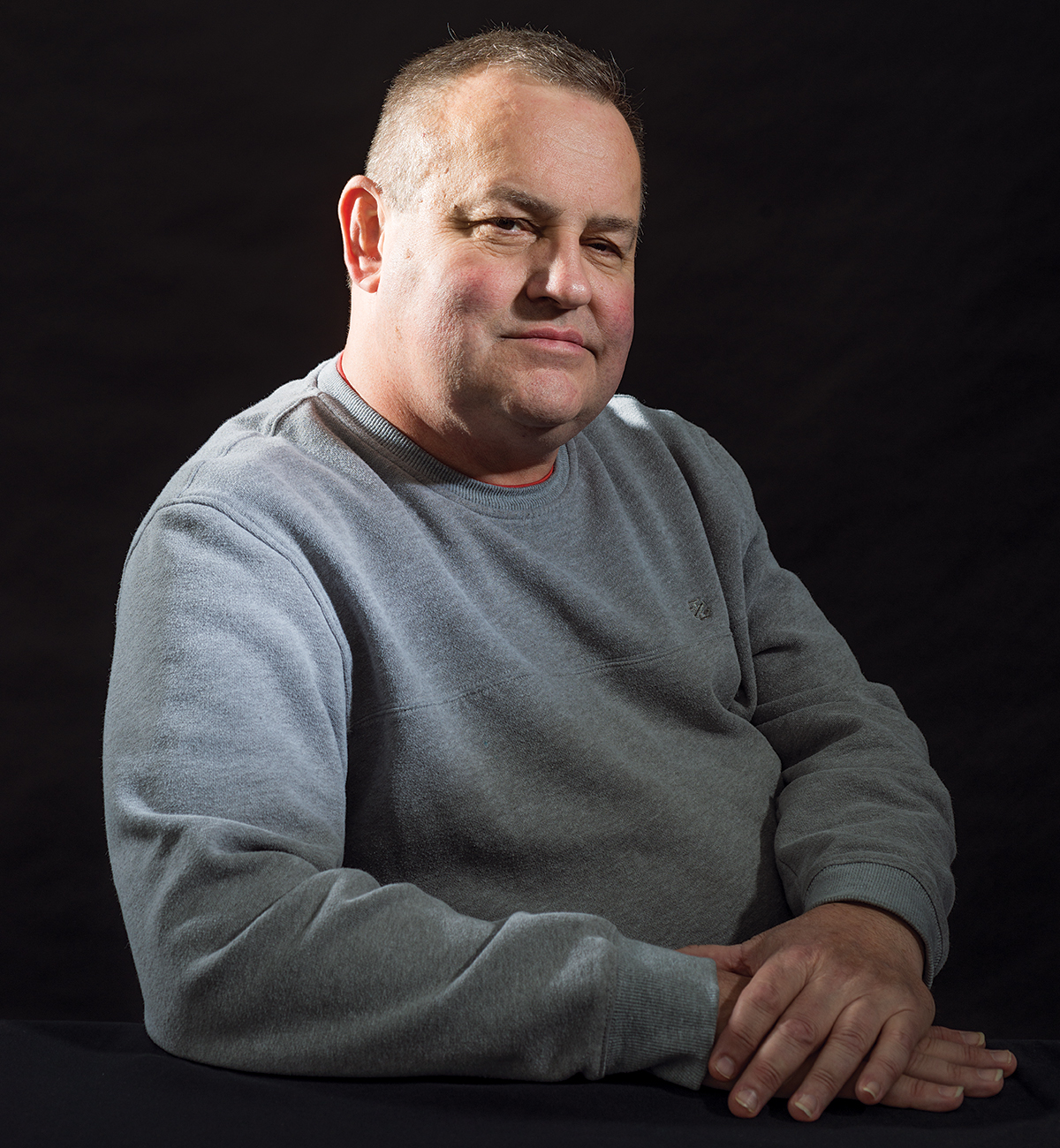The Interview: Thomas Manning, America’s First Penis Transplant Recipient

Photograph by Jenna Skutnik
Four years ago, Thomas Manning received devastating news: He had cancer and needed to have his penis amputated. This, of course, took a toll on him both psychologically and physically. Manning, though, was undeterred and later became just the third person—and the first American—to receive a penis transplant. The pioneering surgery, performed at Massachusetts General Hospital in May, lasted for 15 hours and has since been heralded as a major medical breakthrough. Today, Manning, 64, is cancer-free and waiting for doctors to tell him it’s safe to pop a Viagra. Talking with him at his home in Halifax, one thing becomes remarkably clear: Manning is not shy about anything.
What were the circumstances that led you to volunteer for this experimental surgery?
Let’s start four years ago when I had an accident. I had slipped on some black ice while working. I was pushing a cart that carries moving boxes. It went up in the air, too, and landed on me—on top of my stomach—and pushed 30 percent of my colon down into my groin. While I was being treated at Mass General, doctors performed all of these tests on me. At first, they couldn’t find anything. But then one doctor was examining my groin and all of a sudden said, “You have cancer.” They biopsied a piece of my penis and confirmed I had cancer. They said the only treatment available was that the entire penis had to be removed. They were worried it was in my lymph nodes. More than a week later, the doctor amputated my penis.
What were the psychological consequences and the physical challenges of having the amputation?
It was a real kick in the chops. I actually thought I was going to die. Then I thought I was going to have tubes forever hanging off of me. I wondered how I was going to go to the bathroom. The doctor told me not to jump to conclusions. When I woke up from the surgery, my penis was gone and they had put in a catheter. I didn’t look at it for a few days—maybe three days. I didn’t have the courage to look at myself.
Were there physical complications?
One after another. One of my testicles blew up to the size of a basketball. All of this fluid had built up in it. So here I am with my penis chopped off and my testicles blown up. They had to operate again. I was thinking what everyone else probably would be thinking: What kind of guy am I going to be? Am I going to be disabled for the rest of my life? I confronted it. How was I supposed to feel? You’re never the same after something like this.
How did you pee?
They sent me home with a catheter and I became rather comfortable with it. I think it made it easier for me to learn to accept the position that I was in. Without the catheter, I just had a wound, and you couldn’t expose that wound. The only way to deal with it was with a catheter.
Did you still think about sex?
I didn’t think there was going to be any more of that. I just came to terms with it. I didn’t dwell on it.
Were you resigned to living the rest of your life without a penis?
Oh, yeah. I wasn’t getting anywhere with the doctors for a long time. Your whole life is upside down. I was dealing with it, but I kept thinking there were [other patients in the hospital] all around me who were much worse.
So how did you end up consulting a medical team about a penis transplant?
I didn’t sit around and wait. I wanted this and kept pushing my doctors to ask about it. They initially told me I wasn’t a candidate for it because I had a heart condition. So they put me on the inactive list. Right away, I called my doctors to get a cardiologist appointment so that I could limit the risk [from my] heart condition and be considered a better candidate for the transplant and surgery.
What did your doctors tell you about the realities of having a transplant? Were there major risks?
Yes. It was a 16-hour-long surgery, so they were concerned about my heart condition. The real tough part of this, though, was the medication that I would need to take to stop the body from rejecting the transplant. They told me it would knock years off my life because of the stress it puts on your body and kidneys. I was initially very concerned about that.
Was there any talk about the size, girth, and skin tone of the donor’s penis?
The only concerns were about skin tone and blood type. Those were the two things they look to match up. Everything else is hit or miss.
How did they find a donor?
I went on a list, the donor list.
Were there challenges in finding a consenting donor?
I had type B blood, and that’s pretty rare. I was pretty lucky that they found a donor. I was lucky because I was ready, they were ready, and we found a donor within our time frame. Everything just came together.
Do you know anything about your donor?
They didn’t give us much information at all. This person had died in Maine. Eight people received organs from this donor. The doctors were there [just before he died] and had a religious service. All of the family members were with the doctors and said prayers. He was kept on the machine while they said their prayers and then they [removed] the organs, and he was taken off the machine.


